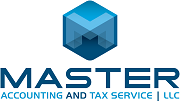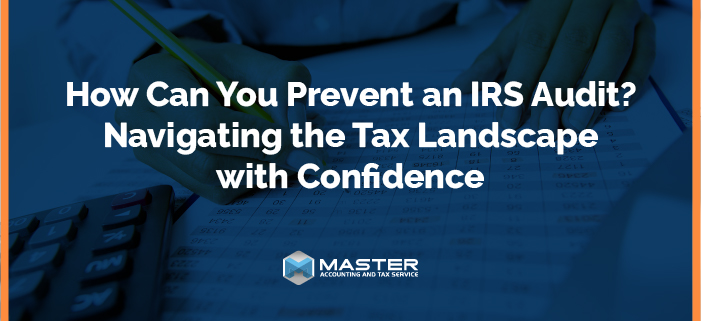How Can You Prevent an IRS Audit? Navigating the Tax Landscape with Confidence
Navigating taxes as a small business owner can feel like a minefield.
And for many, there’s nothing more daunting than facing an IRS audit.
While there’s no guaranteed way to prevent IRS audit, there are steps you can take to lower the risk of setting off those audit alarms.
In 2022, the IRS conducted over 700,00 tax return audits and found that $30.2 billion in extra taxes were owed.
Currently, the likelihood of being audited is slightly under 1%.
However, making mistakes or leaving things out might inadvertently raise red flags.
Inviting closer inspection from the tax authorities. In this blog, we’ll discuss practical tips to keep your business safe from the audit spotlight.
Understanding the Risk: Why Audits Happen
We all know that the IRS checks some tax returns more closely than others.
They want to make sure everything’s accurate and that filers are following the rules.
But why do they pick certain returns for a closer look?
Certain situations can raise red flags for the IRS.
Prompting them to dig deeper into your tax return.
Factors like inconsistencies or unusually high deductions are common attention grabbers.
Therefore, try to be as thorough and transparent as possible when it’s time to itemize deductions.
Misunderstanding what can be deducted or inflating deductions can raise suspicions.
Getting these deductions right is vital for a smooth tax filing experience.
You’ll learn more about itemized deductions vs. standard deductions in a later section.
Even simple errors can snowball into an IRS audit.
Something as seemingly harmless as math mistakes or forgetting to report all your income can inadvertently trigger an audit.
Understanding these common mistakes is crucial to avoiding them and ensuring accurate tax filing.
Tips to Prevent an IRS Audit
Keep detailed records of your expenses, income, receipts, and invoices.
An organized system makes it easier to substantiate your deductions and claims if the IRS ever comes knocking.
Place reminders on your calendar so you don’t forget payment dates.
For small business owners, estimated tax payments are due in April, June, September, and January.
These payments cover income tax as well as self-employment tax like Social Security and Medicare.
In addition, small businesses usually have to submit their annual tax return by April 15th.
This includes information about your income, deductions, and other financial details from the previous year.
Meeting tax deadlines and filing extensions (if necessary) demonstrates diligence and can prevent unnecessary attention from the IRS.
Ensure all sources of income are reported accurately.
Missing or incorrectly reported income can trigger audits.
Double-check all calculations to avoid simple errors that could raise red flags.
Accurate math minimizes the risk of drawing attention to your return.
If you’re not sure, consider consulting a tax advisor or accountant.
Their expertise can offer valuable guidance.
Ensuring your tax return is accurate and compliant with regulations.
Reducing the likelihood of an audit.
By maintaining meticulous records, you can strengthen your tax return and lower your risk of an audit.
The Significance of Standard vs. Itemized Deductions
Understanding the difference between itemized and standard deductions when filing taxes is very important.
The standard deduction is a fixed amount the IRS allows you to deduct from your income without needing to itemize specific expenses.
On the other hand, itemized deductions involve listing out individual expenses like mortgage interest, medical expenses, charitable donations, etc.
This can potentially result in a higher deduction than the standard allowance.
Here are two relatable examples to help you better understand the difference:
Standard Deduction
For this example, let’s assume the standard deduction set by the IRS is $12,550 for a small business owner.
If your allowable itemized deductions (e.g., office supplies, equipment purchases, travel expenses, etc) amount to less than $12,550, it would be more beneficial for you to take the standard deduction.
This means you can deduct $12,550 from your taxable income without having to list each expense separately.
Itemized Deductions
On the other hand, if your total business expenses are more than the standard deduction of $12,550, itemizing could be more beneficial. This method allows you to claim all qualifying expenses.
Potentially lowering your taxable income and reducing your tax liability.
Understanding the difference between these two approaches is crucial because it can significantly impact the amount of taxes you owe or the refund you receive.
It’s important to evaluate your individual circumstances each year to determine which deduction method benefits you more.
Strategies to Minimize Errors When Filing Taxes
Make sure to use trustworthy tax software to minimize math mistakes and ensure all forms are completed properly.
Double-check all information before hitting submit (or dropping it in the mailbox if using a paper return).
This will help you further ensure accuracy in numbers and personal details.
Seek advice from tax professionals or advisors when navigating complex tax situations.
Small businesses like partnerships, S Corporations, and sole proprietorships pass profits and losses to owners’ personal tax returns.
Reporting these accurately and dealing with deductions and credits can be tricky.
Make sure you report all sources of income.
This includes freelance projects, side gigs, interest, dividends, and any other earnings.
Inaccurate or incomplete income reporting is a common red flag IRS agents look for when reviewing taxes.
Last but not least, stay updated on tax laws and changes.
Understanding the current regulations helps you make more informed financial decisions.
Tax laws undergo frequent updates and revisions.
Being aware of these changes ensures that you’re filing your taxes under the most current regulations.
Ignorance of changes could lead to unintentional errors or omissions.
Failing to follow new tax laws can lead to audits, as well as fines or penalties.
Navigate Tax Season with Confidence
Looking for help to prevent an IRS audit?
Get expert assistance from Master Accounting and Tax Service.
Our experienced team is here to help you file accurately and get the most out of your deductions.
We have over 20 years of experience helping people just like you take charge of their taxes, minimize audit risks, and file with confidence.
Contact us for personalized assistance in securing your financial future.
Seeking Gilbert accounting and tax service for IRS audit prevention? At Master Accounting and Tax Service, we specialize in providing top-tier accounting, tax, bookkeeping, and fractional CFO / controller services at an affordable cost and with the utmost integrity. Call (480) 456-4999 or Contact us today!












